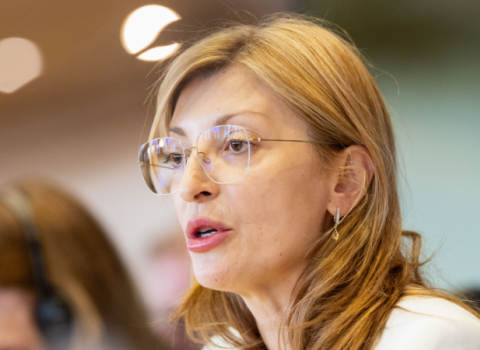Women remain stubbornly under-represented in EU research and science despite numerous attempts to address the imbalance, according to the European Union’s recent analysis, ‘She Figures: Gender in Research and Innovation 2012’. Here, in joint replies to questions posed by Science|Business, Máire Geoghegan-Quinn, Commissioner for Research and Innovation, and Androulla Vassiliou, Commissioner for Education, Culture, Multilingualism and Youth, outline the latest policy moves to deal with this divide.
Q: What obstacles do women face in seeking top positions in the field of science?
A glass ceiling exists across many types of organisations and enterprises. For research institutions, there are a number of obstacles, including opaque structures, an unconscious gender bias in the assessment of excellence, and a persistent gender pay gap.
Women are often hindered in their career progression due to family obligations. The European Union’s Marie Curie Actions, which enable researchers to benefit from grants and gain international experience, specifically help female researchers to achieve a balance between their family and professional lives. When women who have taken a break from their career apply for a grant from the Marie Curie Actions their applications will be evaluated by a specific career return panel.
Q: How does the Commission plan to tackle gender equality in its research programmes?
The Commission has moved its focus from "empowering women in research"- which is still important but not sufficient - to "fixing the institutions".
The barriers we are addressing have deep roots which can only be removed through institutional changes. The Commission wants to promote a change of culture, leading to the modernisation of research organisations and universities. This is clearly largely a job for the institutions themselves, but we want to help wherever we can.
The Commission's July 2012 Communication, "A reinforced European Research Area Partnership for Excellence and Growth" made gender equality one of five key priorities. The promotion of gender equality in research and innovation aims to end the waste of female talent, to bring greater diversity to research and to foster excellence.
Q: What is the Commission doing to exert its influence on gender policies beyond its own research programmes?
Promoting gender equality in research means pursuing three objectives in parallel:
- integrating the gender dimension in research content;
- involving more women as scientists at all levels; and
- improving gender balance in decision-making.
All three objectives need to be tackled by all stakeholders involved in order to reach a critical mass of institutions. This only will effectively promote gender equality and achieve the results for which we are all striving.
The European Research Area Communication puts forward a number of actions to be addressed in partnership - by EU Member States, research organisations and universities, along with the European Commission. Member States are asked to engage in partnerships with funding agencies, research organisations and universities to foster institutional change, and research stakeholder organisations are called on to set and implement gender equality plans.
The Commission has signed memorandums of understanding with the key European associations of universities and research institutions which all include a commitment towards achieving gender equality.
The Marie Curie Actions have a target for 40 per cent female participation by the end of the current research programme, Framework Programme 7. To date, the overall level of female participation stands at 36.5 per cent. The gender distribution varies according to the scientific discipline; women are best represented in life sciences (47 per cent) and environment and geosciences (42 per cent).
Further Information:
The Commission's Communication on the ERA: http://ec.europa.eu/research/era/consultation/era_communication_en.htm
Gender distribution of Marie Curie Actions Fellows by discipline:
|
Discipline |
Female % |
Male % |
|
Chemistry |
34.5 |
65.4 |
|
Economic Sciences |
36.53 |
63.74 |
|
Information Science and Engineering |
21.01 |
78.99 |
|
Environment and Geosciences |
42.24 |
57.76 |
|
Life Sciences |
46.69 |
53.31 |
|
Physics |
22.7 |
77.3 |
|
Mathematics |
17.83 |
82.17 |
|
Social Sciences and Humanities |
52.19 |
47.81 |
Commission Report on Structural Change in Research Institutions: Enhancing Excellence, Gender Equality and Efficiency in Research and Innovation: http://ec.europa.eu/research/science-society/document_library/pdf_06/structural-changes-final-report_en.pdf





 A unique international forum for public research organisations and companies to connect their external engagement with strategic interests around their R&D system.
A unique international forum for public research organisations and companies to connect their external engagement with strategic interests around their R&D system.